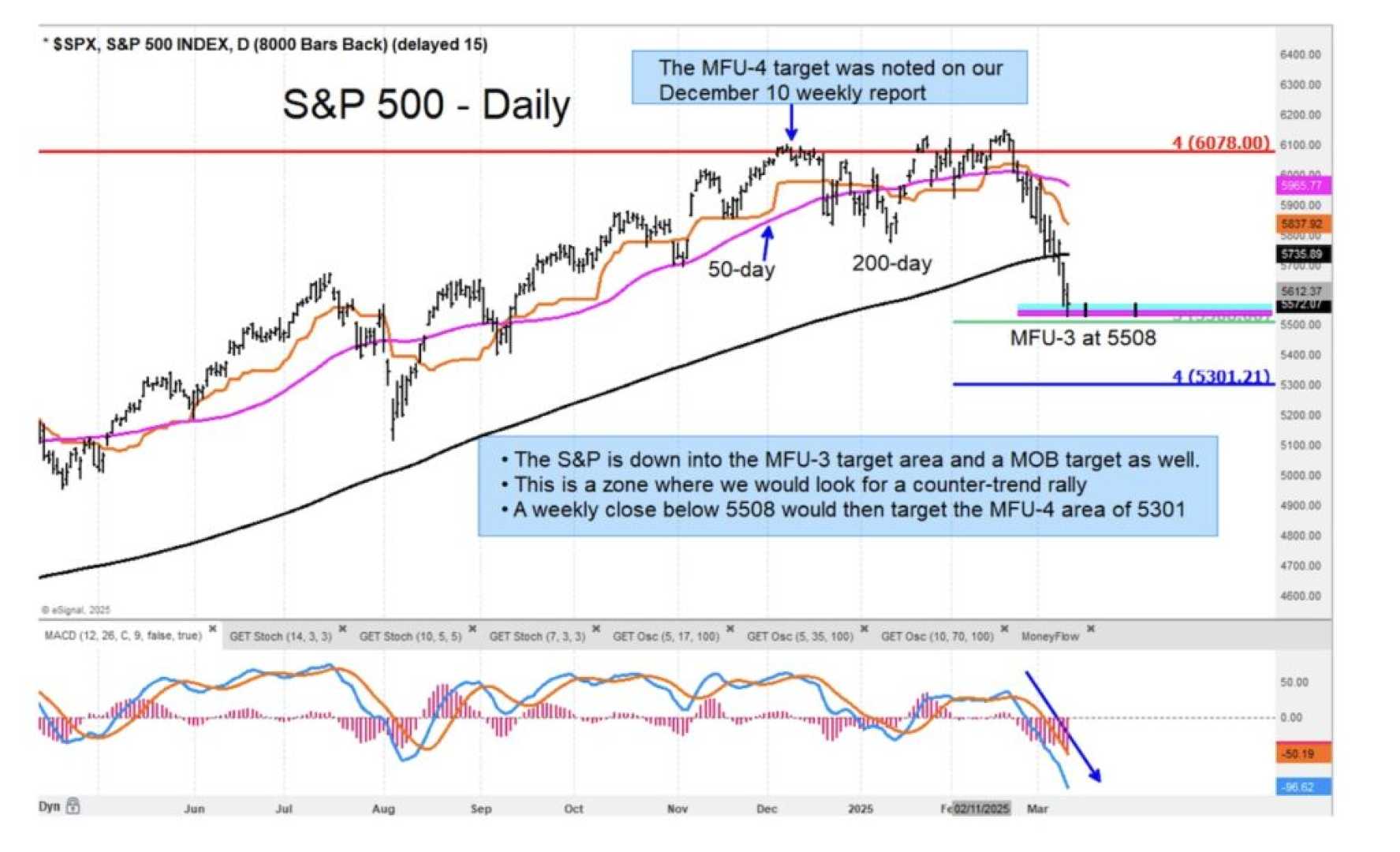Business
Stocks Plunge Amid Trade Uncertainty and Inflation Fears

NEW YORK, New York — U.S. stocks fell sharply on Friday, closing down 715.80 points, or 1.69%, at 41,583.90, as uncertainty surrounding U.S. trade policies and rising inflation prospects weighed heavily on investors. Alongside the Dow, the S&P 500 lost 1.97% to end at 5,580.94, while the Nasdaq dropped 2.7% to settle at 17,322.99, marking its fifth weekly loss out of the last six.
This week, the S&P 500 and Dow saw declines of 1.53% and 0.96%, respectively, while the Nasdaq suffered a 2.59% drop. The current trajectory suggests that the Nasdaq could face more than an 8% decline this month, potentially its worst monthly performance since December 2022.
The market downturn accelerated after the University of Michigan’s consumer sentiment index revealed long-term inflation expectations at their highest since 1993. Additionally, February’s core personal consumption expenditures (PCE) price index came in higher than expected, increasing 2.8%, against a predicted rise of 2.7%, further fueling inflation concerns. Consumer spending rose 0.4%, slightly below the anticipated 0.5%.
Scott Helfstein, head of investment strategy at Global X, remarked, “The market is getting squeezed by both sides. There is uncertainty around next week’s reciprocal tariffs hitting major exporting sectors like tech, along with the worry of a weakening consumer facing higher prices affecting discretionary spending.” Helfstein claimed the inflation data was “not that bad” and suggested it might just be a temporary setback in investor sentiment amid the evolving trade policies from the Trump administration.
Market participants are watching closely for April 2, when President Donald Trump is expected to announce additional tariffs, adding to an ongoing series of announcements that have jolted the market recently. After discussions with Trump, Canadian Prime Minister Mark Carney indicated that Canada would implement retaliatory tariffs in response to U.S. trade actions.
Furthermore, the VIX, a volatility index that measures market expectations for price fluctuations, soared nearly 20%, hitting a lunchtime high of 22.18 on Friday. This marked the index’s highest absolute level since March 18, throwing a spotlight on investor anxiety.
Craig Johnson, chief market technician at Piper Sandler, expressed some optimism despite the significant market volatility. He noted, “We believe the weight of the technical evidence suggests an intermediate-term low may be in place… equities have found some footing after the March lows from which to build upon in the upcoming weeks.”
However, data from Oppenheimer reveal that U.S. stocks are significantly lagging global markets, with the S&P 500 down over 3% year-to-date, while average exchange-traded funds from other countries have gained more than 8%.
Cryptocurrencies also faced pressure, with Bitcoin plunging more than 3% to $83,850.80. Other notable declines included Ethereum, which dropped 6% to $1,875.16, marking a turbulent start to 2025 for the digital assets.
Investors’ confidence remains shaky as reflected in the University of Michigan’s consumer sentiment report, where long-run inflation expectations surged from 3.5% in February to 4.1% in March. The survey indicated a declining sentiment across all political affiliations regarding personal finances and business conditions.
Despite the negative trend, some analysts speculate a potential market recovery could be on the horizon, particularly after April 2 when clarifying trade discussions may take place, similar to market recoveries in prior years. Tom Lee, a risk analyst at Fundstrat, suggested there could be a significant rebound, particularly among leading tech stocks.












